BMW X1 vs Ford Focus - Differences and prices compared
Costs and Efficiency:
Price and efficiency are often the first things buyers look at. Here it becomes clear which model has the long-term edge – whether at the pump, the plug, or in purchase price.
Ford Focus has a clearly perceptible advantage in terms of price – it starts at 27500 £, while the BMW X1 costs 38200 £. That’s a price difference of around 10714 £.
Fuel consumption also shows a difference: BMW X1 manages with 2.50 L and is therefore convincingly more efficient than the Ford Focus with 4.90 L. The difference is about 2.40 L per 100 km.
Engine and Performance:
Power, torque and acceleration say a lot about how a car feels on the road. This is where you see which model delivers more driving dynamics.
When it comes to engine power, the BMW X1 has a to a small extent edge – offering 326 HP compared to 280 HP. That’s roughly 46 HP more horsepower.
In acceleration from 0 to 100 km/h, the BMW X1 is barely noticeable quicker – completing the sprint in 5.40 s, while the Ford Focus takes 5.70 s. That’s about 0.30 s faster.
In terms of top speed, the performs better – reaching , while the tops out at . The difference is around .
There’s also a difference in torque: BMW X1 pulls slightly stronger with 477 Nm compared to 420 Nm. That’s about 57 Nm difference.
Space and Everyday Use:
Cabin size, boot volume and payload all play a role in everyday practicality. Here, comfort and flexibility make the difference.
Seats: offers more seating capacity – vs .
In curb weight, Ford Focus is to a small extent lighter – 1330 kg compared to 1575 kg. The difference is around 245 kg.
In terms of boot space, the BMW X1 offers clearly perceptible more room – 540 L compared to 392 L. That’s a difference of about 148 L.
In maximum load capacity, the BMW X1 performs a bit better – up to 1600 L, which is about 246 L more than the Ford Focus.
When it comes to payload, Ford Focus somewhat takes the win – 560 kg compared to 500 kg. That’s a difference of about 60 kg.
Who wins the race?
The BMW X1 proves to be outperforms in nearly all aspects and therefore becomes our DriveDuel Champion!
BMW X1 is the better all-rounder in this comparison.
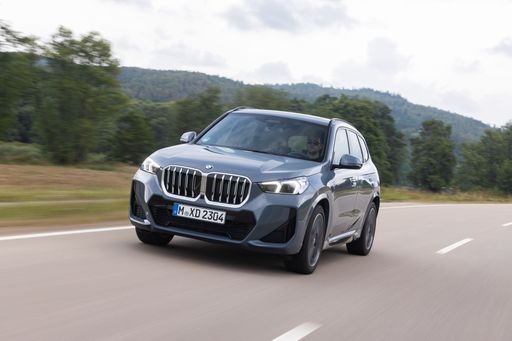 @ BMW Group Press
@ BMW Group Press
BMW X1
Costs and Consumption
View detailed analysis
Engine and Performance
View detailed analysis
Dimensions and Body
View detailed analysis
BMW X1
The BMW X1 brings a premium feel to compact crossover life, wrapping practical space and agile handling into a tidy, upscale package. It’s ideal for buyers who want BMW driving dynamics without the bulk, offering everyday comfort and a few clever tricks to keep the commute interesting.
details @ BMW Group Press
@ BMW Group Press
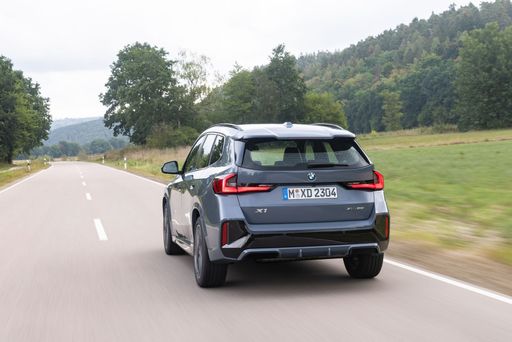 @ BMW Group Press
@ BMW Group Press
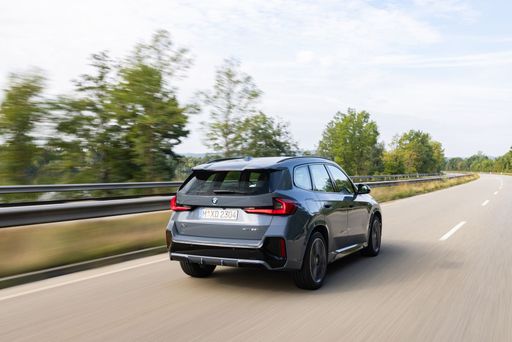 @ BMW Group Press
@ BMW Group Press
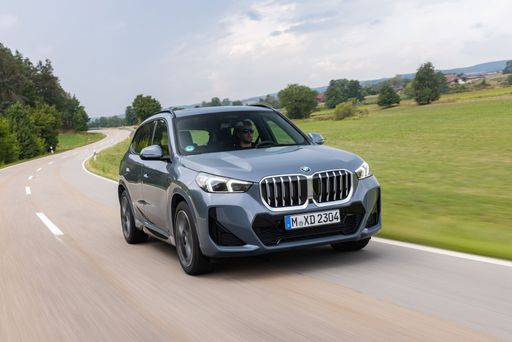 @ BMW Group Press
@ BMW Group Press
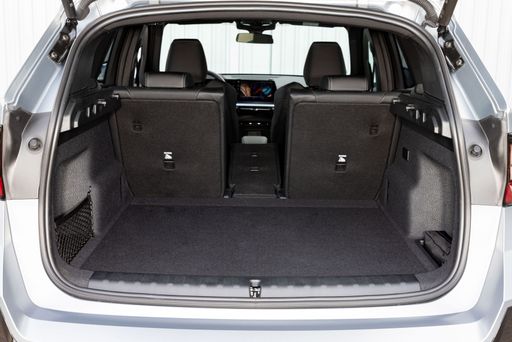 @ BMW Group Press
@ BMW Group Press
Ford Focus
The Ford Focus remains a clever all‑rounder that balances sharp handling with everyday comfort, making it a strong choice whether your commute is city streets or country lanes. Its practical cabin and sensible running costs mean you’ll spend more time enjoying the drive and less time worrying about ownership, with a playful streak underfoot that keeps things interesting.
details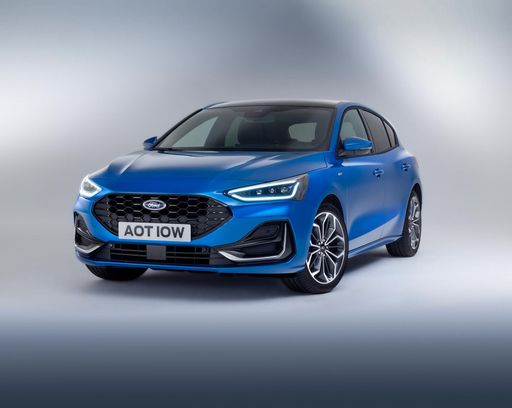 @ Ford Motor Company / Ford Media Center
@ Ford Motor Company / Ford Media Center
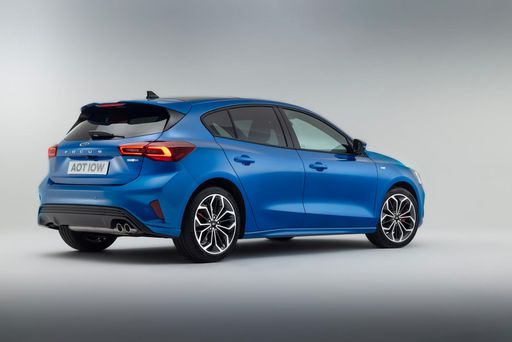 @ Ford Motor Company / Ford Media Center
@ Ford Motor Company / Ford Media Center
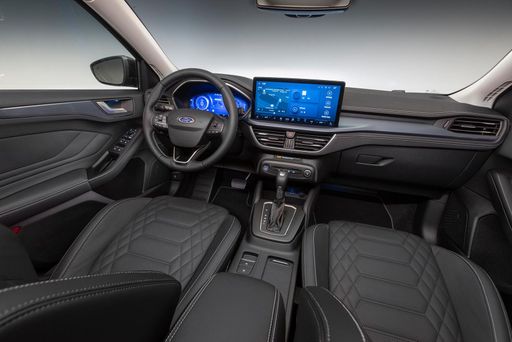 @ Ford Motor Company / Ford Media Center
@ Ford Motor Company / Ford Media Center
 @ BMW Group Press
@ BMW Group Press
|
 @ Ford Motor Company / Ford Media Center
@ Ford Motor Company / Ford Media Center
|
|
|
|
Costs and Consumption |
|
|---|---|
|
Price
38200 - 55500 £
|
Price
27500 - 42700 £
|
|
Consumption L/100km
2.5 - 7.7 L
|
Consumption L/100km
4.9 - 8 L
|
|
Consumption kWh/100km
-
|
Consumption kWh/100km
-
|
|
Electric Range
81 km
|
Electric Range
-
|
|
Battery Capacity
14.20 kWh
|
Battery Capacity
-
|
|
co2
57 - 175 g/km
|
co2
117 - 183 g/km
|
|
Fuel tank capacity
47 - 54 L
|
Fuel tank capacity
52 L
|
Dimensions and Body |
|
|---|---|
|
Body Type
SUV
|
Body Type
Hatchback
|
|
Seats
5
|
Seats
5
|
|
Doors
5
|
Doors
5
|
|
Curb weight
1575 - 1935 kg
|
Curb weight
1330 - 1529 kg
|
|
Trunk capacity
490 - 540 L
|
Trunk capacity
392 L
|
|
Length
4500 - 4505 mm
|
Length
4382 - 4397 mm
|
|
Width
1845 mm
|
Width
1825 - 1844 mm
|
|
Height
1622 - 1642 mm
|
Height
1438 - 1482 mm
|
|
Max trunk capacity
1495 - 1600 L
|
Max trunk capacity
1354 L
|
|
Payload
490 - 500 kg
|
Payload
495 - 560 kg
|
Engine and Performance |
|
|---|---|
|
Engine Type
Diesel MHEV, Petrol MHEV, Petrol, Diesel, Plugin Hybrid
|
Engine Type
Petrol MHEV, Diesel, Petrol
|
|
Transmission
Automatic
|
Transmission
Manuel, Automatic
|
|
Transmission Detail
Dual-Clutch Automatic
|
Transmission Detail
Manual Gearbox, Dual-Clutch Automatic, Automatic Gearbox
|
|
Drive Type
Front-Wheel Drive, All-Wheel Drive
|
Drive Type
Front-Wheel Drive
|
|
Power HP
136 - 326 HP
|
Power HP
115 - 280 HP
|
|
Acceleration 0-100km/h
5.4 - 9.2 s
|
Acceleration 0-100km/h
5.7 - 11.8 s
|
|
Max Speed
190 - 250 km/h
|
Max Speed
186 - 250 km/h
|
|
Torque
230 - 477 Nm
|
Torque
170 - 420 Nm
|
|
Number of Cylinders
3 - 4
|
Number of Cylinders
3 - 4
|
|
Power kW
100 - 240 kW
|
Power kW
85 - 206 kW
|
|
Engine capacity
1499 - 1998 cm3
|
Engine capacity
999 - 2261 cm3
|
General |
|
|---|---|
|
Model Year
2024 - 2025
|
Model Year
2022 - 2024
|
|
CO2 Efficiency Class
D, E, F, B
|
CO2 Efficiency Class
D, G
|
|
Brand
BMW
|
Brand
Ford
|
Is the BMW X1 offered with different drivetrains?
The BMW X1 is offered with Front-Wheel Drive or All-Wheel Drive.
The prices and data displayed are estimates based on German list prices and may vary by country. This information is not legally binding.
